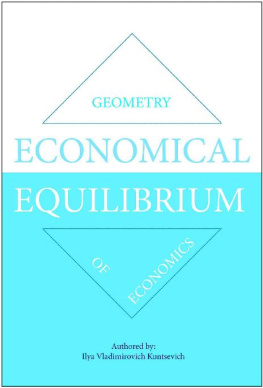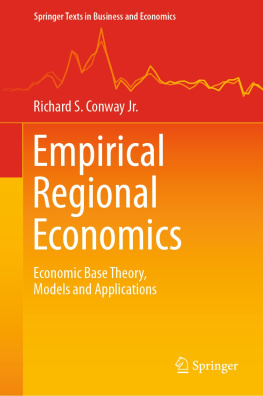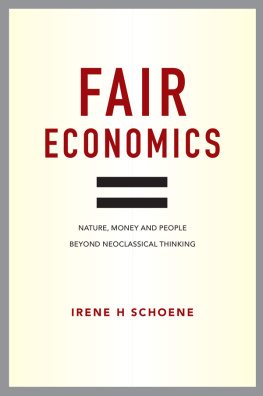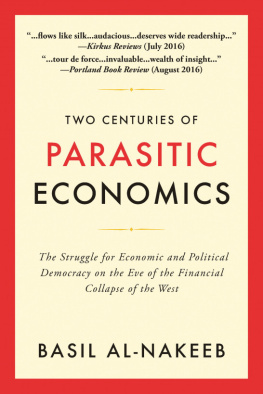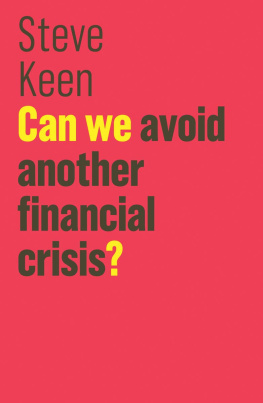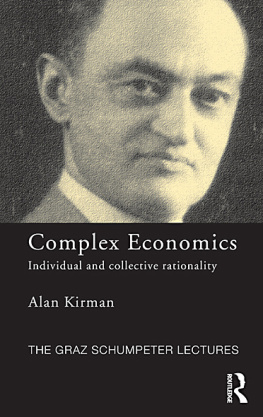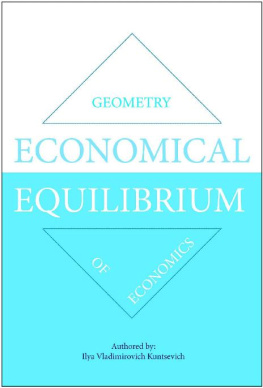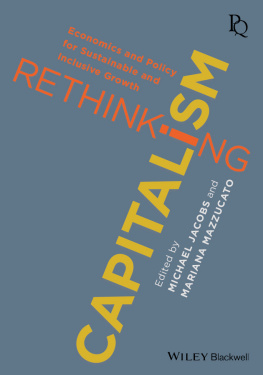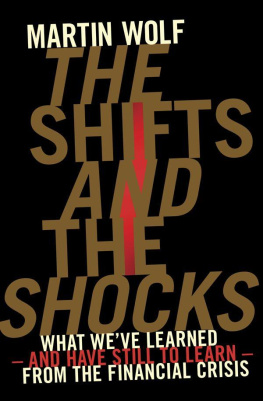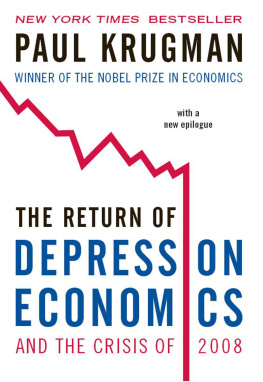Modern economics is a focus of many people, especially in the aftermath of the 20072008 financial and economic crisis. One has to wonder whats wrong with the economic system if it breaks down now and then? Should the modern economic theories, accounting principles and financial models be relied upon going forward? Could we devise an alternative economic system, which would be whole and sustainable, and allow a crisis-proof pace of economics? Could we design and build more intelligent tools and models in order to see the big picture and avoid future crises?
This book initially came about as a way to identify the root cause of an economic crisis. Only by taking something that doesnt work apart, can we see the root cause of the problem. Therefore, the book starts with the fundamentals of economics, accounting and finance, exposing some of their obvious flaws and misconceptions, and continues with the analysis of the global economys modern condition.
As the book has progressed, Economical Equilibrium theory has evolved as a new economic system, assisted by geometry. A visualization technique, which allows identification of the cause and effect relationship using geometrical figures, rather than linear mathematics, aids Economical Equilibrium theory in multiple applications across all levels of economics.
Using its ten postulates, Economical Equilibrium theory is capable of both identification and prevention of economic crises, as well as effective design and management of sustainable economic activities. I also make certain recommendations on changes to the fundamentals of accounting principles and financial models, which should add transparency and accountability thereof. If followed diligently, these recommendations will alleviate concerns of people on the future of the global economy, and their individual well-being.
What Drives Economics
Economics is a reflect ion of peoples activities; it is a mirror of what we do. Convenience, sense of accomplishment, satisfaction and aspirations are the key drivers of any economic system, because the world is driven by the desires of people to live a life they want more comfortable, more satisfying to their needs and values. Modern economics is reflected by what is measured and exchanged quantitatively; the language of economics is numbers, currency and graphs.
An argument could be made that satisfaction doesnt always come from the items that can be measured (e.g. with money). For example, love, conscience, friendship and happiness are invaluable features of our lives and provide infinite internal satisfaction. Nevertheless the external side of human nature doesnt change as if we are programmed to look for better living conditions and improve them to our desires, should an opportunity arise. A house, heating, transportation, supermarkets, telephone, internet these are habitual representations of our modern civilizations exterior. None of these amenities or conditions is provided by Mother Nature as is natural resources are converted, or transformed, by human labor and technology into what we enjoy every day. Natural resources and technology provide what it takes to grow the economy through the transformation of the former.
Production is often referred to in the manufacturing sector as something generated by people. So many cars, or materials are produced; but are they really? I prefer to think of it as conversion or transformation because one cannot produce something out of nothing. The human contribution (labor, craftsmanship and technology) converts and transforms what Mother Nature provided to us in abundance (natural resources) to begin with, so we could maintain and improve our lives at its expense with no retribution.
Economics is driven not only by demand (consumption) of natural resources, as many of us tend to think, but also by the human contribution, required in order to transform these resources using labor and technology. It is a known fact that equilibrium exists when demand equals contribution, but regardless, whether it is balanced or not, economics depends entirely on the access to, and transformation of, natural resources. There would be no economics without availability of natural resources .
People buy new things in order to increase their living standards. So much iron ore, oil or gold is extracted and transformed into metal, gas or jewelry. Workers hours and technology contribute to manufacturing of specific products. Given that human labor and technology are the only two contributing factors in economics, economic growth is not possible without ever -increasing consumption of natural resources through further exploitation of human labor and / or technology. Therefore, economic growth tends to exploit everything and everyone, because everything is in equilibrium. Furthermore, we need to be mindful of the price at which economic growth is achieved overexploitation and pollution of natural resources, not accounted for at present, will inevitably lead to a backlash by Mother Nature in the future.
Due to economic growth, natural resources, initially abundant, have become scarce due to extraction, transformation and resulting pollution (carbon dioxide, contaminated oil fields, water, and land). The price of natural resources tends to increase in order to restrain further depletion, but to whom do we pay the price? Earth? Pricing regulation helps, but only temporarily the more the economy grows, the less resources are available, regardless of the price tag, because people still need them in order to accommodate their new lifestyles and / or simply survive. For example, drinking water, which used to be free, is getting more and more expensive. Nowadays we have to earn a living in order to buy drinking water, because we cannot live without water, regardless of how much it costs.
Scarcity and need features of natural resources create their measurement value and thus add to economics, but when its gone, how much money is it worth? What used to be abundant and priceless later becomes scarce and measurable, and finally nonexistent three stages of non-renewable and in-demand natural resources.
When a particular natural resource becomes rare and there is not enough purchasing power (money) restriction to buffer further demand, people tend to take it over by force, and not necessarily because they need it to su rvive sometimes it just glitters or allows a cheaper commute from point A to point B. But what makes things worse is a combination of scarcity of certain natural resources (e.g. oil & natural gas) and dependence of modern technology on them, in order to satisfy the needs and wants of people using it. In such cases, wars become inevitable, as we have seen repeatedly over the course of human history to date.

